“I remain convinced that Haiti has a lot to teach the rest of the world, like its history, and this humanity that welcomed me when I arrived here,” affirms the media professional, who has been based in the country for decades
Since he got into the habit of coming to Haiti in the early 2000s, Étienne Côté-Paluck dreamt of one thing: buying land and building a small house by the sea.
In 2012, the Canadian journalist made his dream come true in Jacmel.
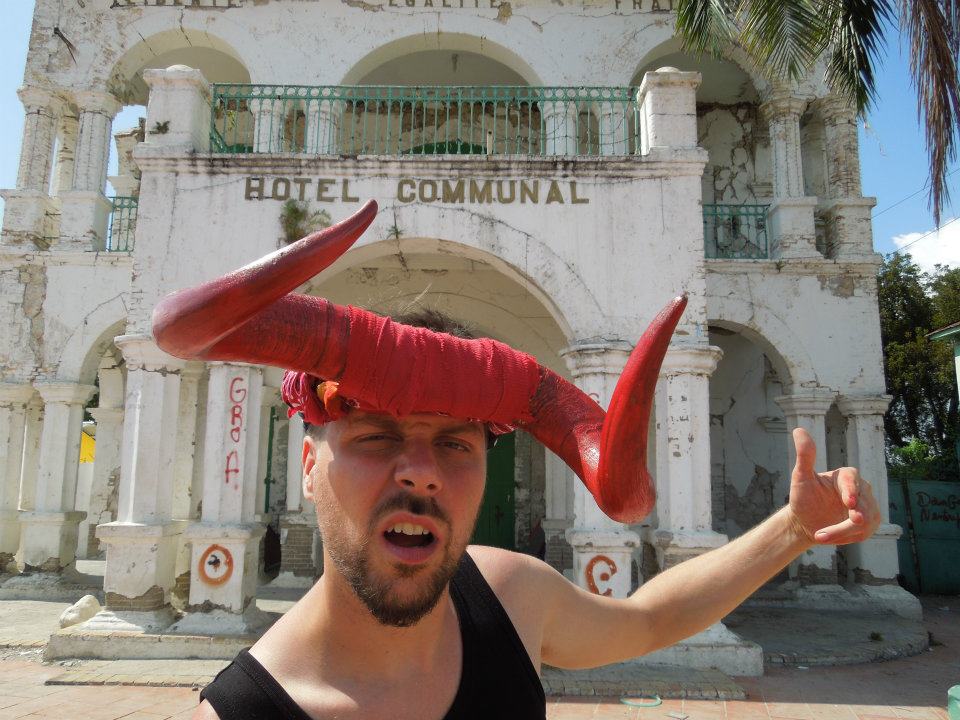
Étienne Côté-Paluck in front of the Hôtel Communal de Jacmel in 2012, wearing a red bull’s horn while participating in the city’s carnival festivities. | © Frédéric Guindon
With this goal achieved, Côté-Paluck endeavored to formalize his attachment to Haiti.
In 2020, with the office of the President of the Republic, Jovenel Moïse, he began taking steps to obtain the Haitian nationality.
The assassination of the head of state a year later brought his momentum to a halt, but Côté-Paluck wants to see things through.
“I remain convinced that Haiti has a lot to teach the rest of the world, like its history, and this humanity that welcomed me when I arrived here,” affirms the media professional, who has been based in the country for decades.
Côté-Paluck recounts his experience in Haiti to the international press from the inside. His reports describe the daily life of the country, with its misfortune and its riches.
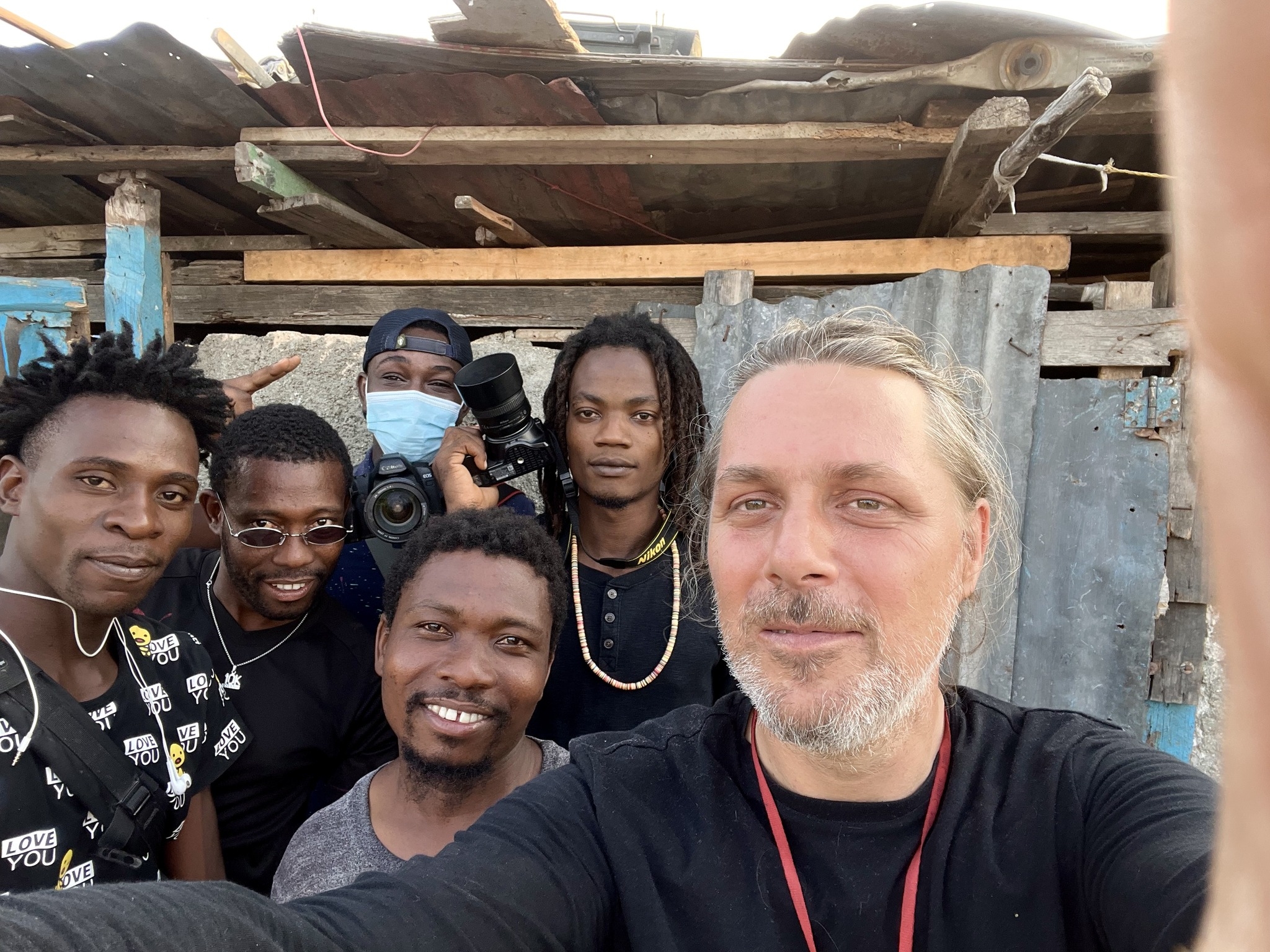
Journalist Étienne Côté-Paluck takes a selfie with his colleagues at Déyè Mòn Enfo during a report in 2023.
His history with Haiti dates back to the fall of the Duvalier dictatorship in 1986.
At that time, Haitians, exiled for years in Canada due to the dictatorship, decided to return to their native country.
In 1986, there were more than 48,000 Haitian immigrants in the North American country.
“I came with my parents, who accompanied their Haitian friends to Haiti,” says the Montreal native.
At eight years old, Côté-Paluck frequented the Champs-de-Mars, and attended political debates and national carnival parades.
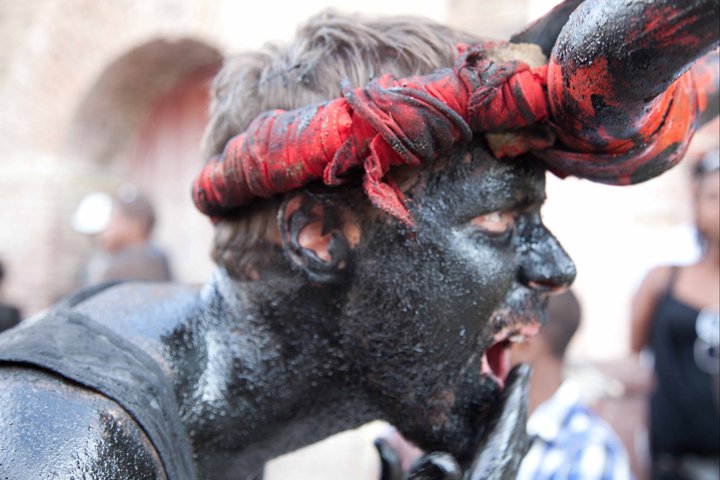
Étienne Côté-Paluck in costume participating in the Jacmel’s carnival festivities in 2012. | © Frédéric Guindon
This first contact with the country is decisive.
For, in the early 2000s, while studying cinema and communications he began to make frequent trips between Montreal and Port-au-Prince.
“I felt more and more attached to the music, the gastronomy and even more to the people,” relates the man who worked as a music critic at Radio-Canada at the time.
Gradually, Côté-Paluck created a space for himself.
He offered his services for the organization of the Jacmel Film Festival, a decision that solidified his love for the South-East.
Between 2004 and 2007, the festival showcased the country’s film productions every year.
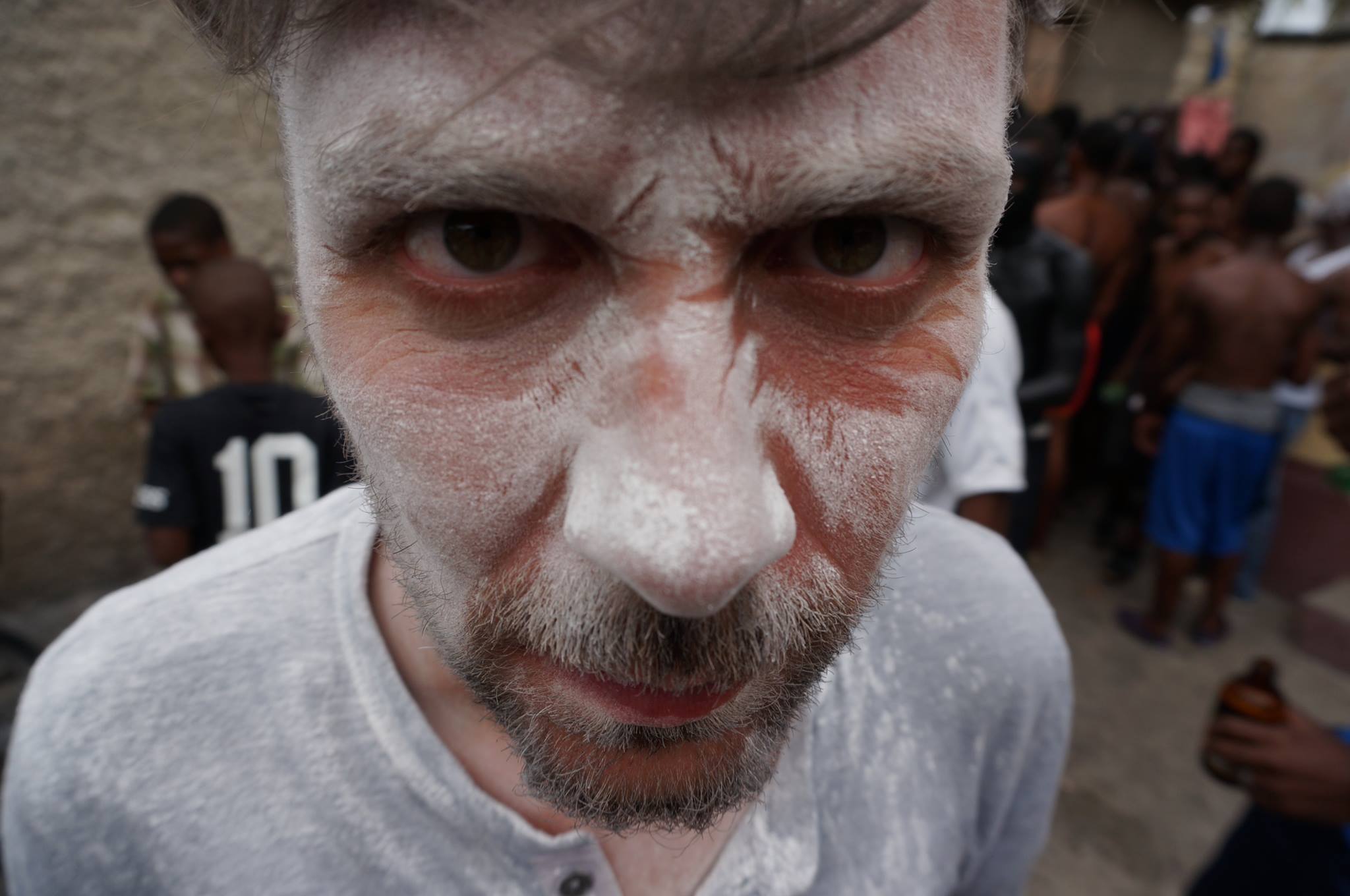
Étienne Côté-Paluck, filming for TV5 on the Day of the Dead in Haiti in 2013.
In 2008, the professional decided to learn Haitian Creole in order to better communicate with his new Haitian friends.
Driven by a keen curiosity to explore the Haitian carnival, a group of Canadian friends expressed the desire to accompany him to Haiti during his trip planned for the beginning of 2010.
Everything was in place when the January 12, 2010 earthquake occurred, causing the death of more than 300,000 people and considerable material damage.
Two close friends of Côté-Paluck in Haiti, feminist activists, Magalie Marcelin and Myriam Merlet, died in the cataclysm.
“I experienced a big shock,” he explains to AyiboPost, with a note of emotion in his voice.
In the wake of the earthquake, he received a call from Radio-Canada offering to accompany his teams on the ground in Haiti.
Côté-Paluck entered the country in a completely different context than what he had imagined months before.
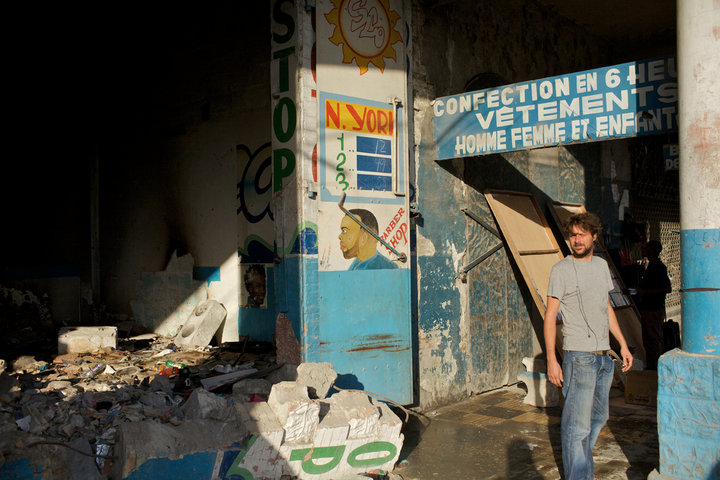
Special correspondent for Radio-Canada in Port-au-Prince, journalist Étienne Côté-Paluck examines the damage caused by the 2010 earthquake in the capital. | © Benoit Aquin
In lieu of musical floats passing through the Champs-de-Mars amidst jubilant crowds, he was confronted with the devastating scene of gray concrete blocks, rubble, and desperate crowds, lacking in everything, searching for their missing loved ones.
After the earthquake, Côté-Paluck decided to settle in Haiti.
“Having experienced the ups and downs of this country, I set myself the task of recounting its daily life in all its facets,” he confides to AyiboPost.
In 2020, with other Haitian journalists, he founded the collective “Dèyè Mòn Enfo” and Haïti Magazine three years later.
The objective, he says, is “to highlight a positive facet of the country with every new issue.”
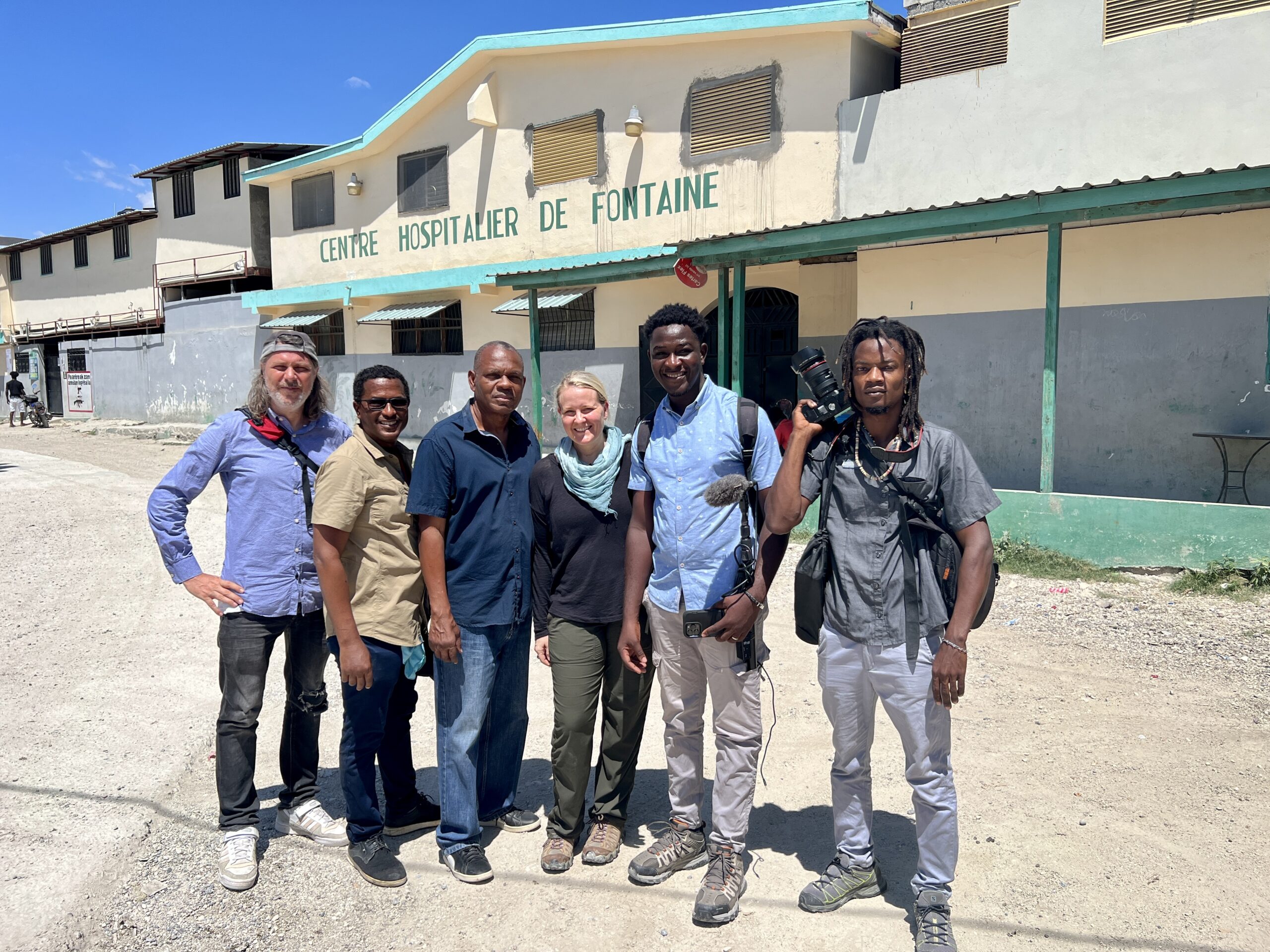
The “Dèyè Mòn Enfo” team during a report in Cité-Soleil in 2023.
The work published on these two platforms highlights the dignity of Haitians despite the challenges, popular resistance movements against insecurity, and development initiatives within communities. According to Côté-Paluck, this stands in contrast to the gloomy narratives that have been produced about the country for years, both internally and externally.
Moreover, the journalist is delighted by the welcome and respect he has received, despite his status as a foreigner in the country.
“Sometimes I feel privileged, other times I don’t. But, I have no reason to complain on this point,” he confides to AyiboPost.
The insecurity that reigns on the Martissant road leading to the south of the country forces him to reduce his trips between Port-au-Prince and Jacmel.
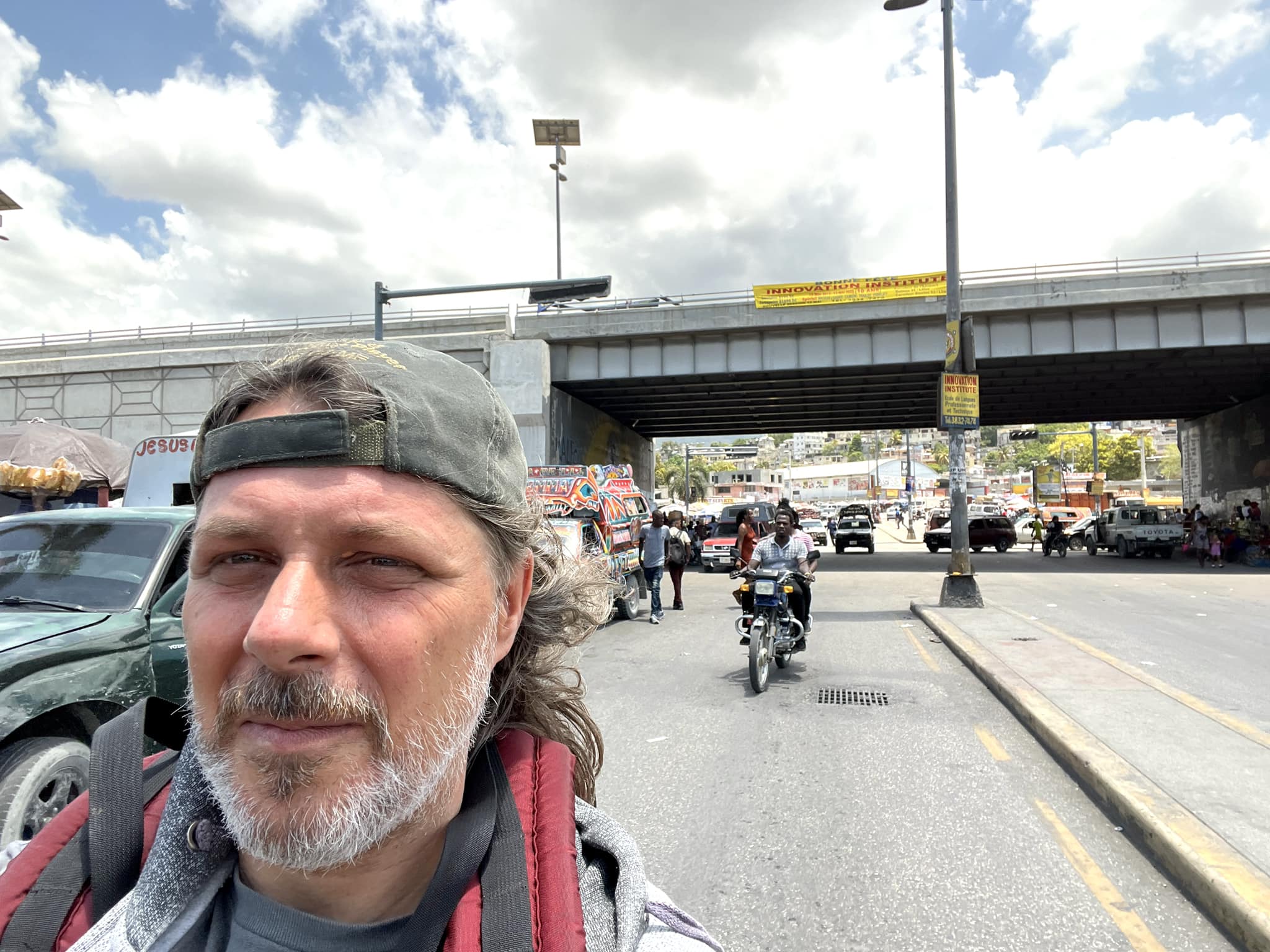
In the Haitian capital, journalist Étienne Côté-Paluck takes a selfie in Delmas, at the Carrefour de l’Aéroport.
For at least three years, bandits have been setting up toll booths on national road number 2.
He and some of his team members are forced to stay in Port-au-Prince, a city he says he regrets is no longer the same as it was 10 years ago.
According to the United Nations, nearly 80% of the Haitian capital is controlled by armed gangs.
Read also: « My life as a child member of 5 Segonn in Village de Dieu »
Kidnapping cases and bloody incidents are common there.
More than 95,000 people fled violence in Port-au-Prince between March and April 2024, according to the International Organization for Migration (IOM).
“Everything changed so quickly,” sighs Côté-Paluck, recognizing that his country, Canada, but also France and the United States have their share of responsibility in what has been happening in Haiti for years.
But the 45-year-old remains optimistic.
“I don’t plan to leave, he says. Unless one day it all collapses to the point where I can no longer work on it. But I dare to hope that everything will be better one day,” concludes Étienne Côté-Paluck to AyiboPost.
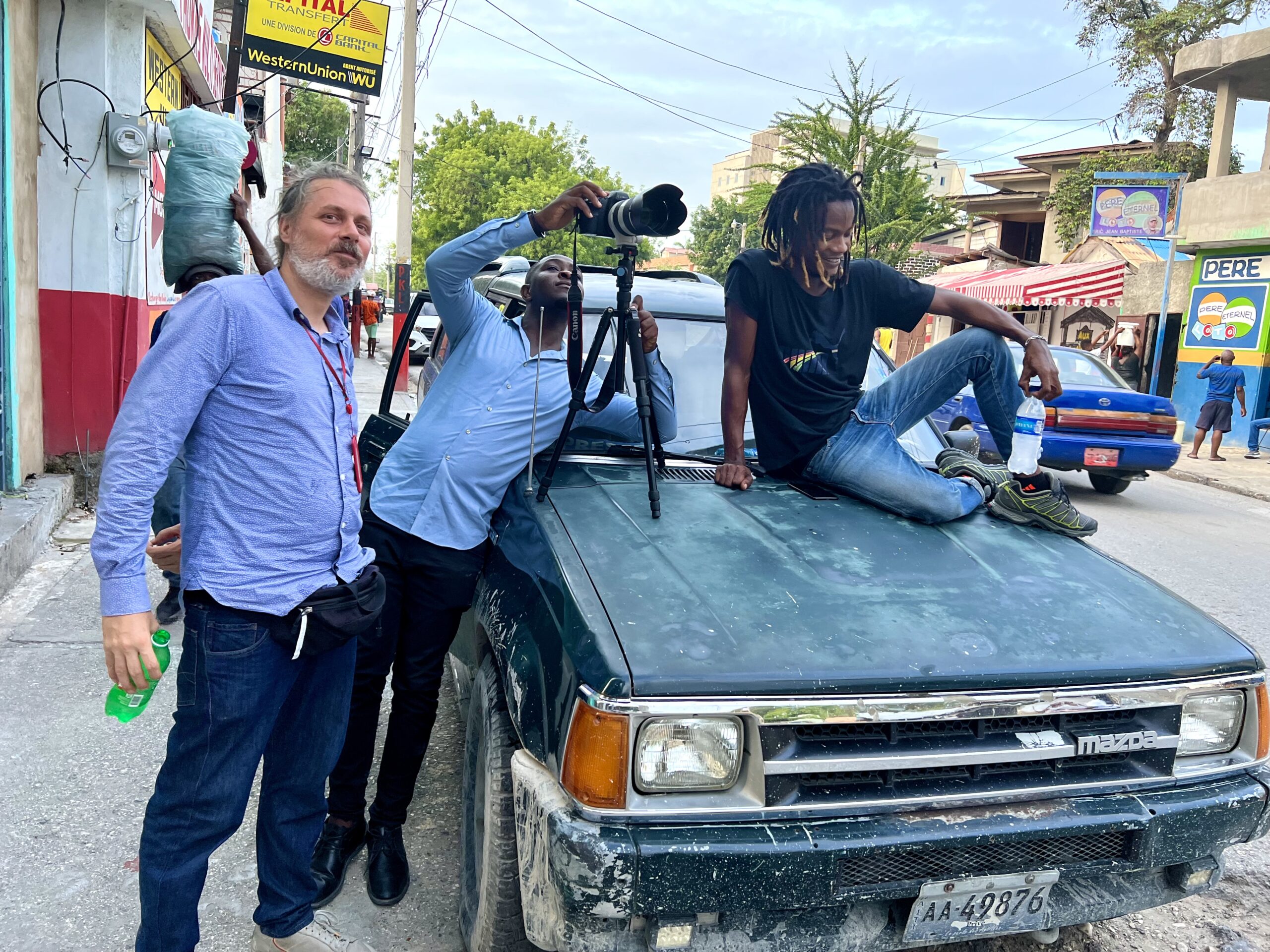
Journalist Étienne Côté-Paluck and his colleagues from Déyè Mòn Enfo during a report in Port-au-Prince in 2022.
Cover image: Journalist Étienne Côté-Paluck takes a selfie on the Ouanaminthe canal construction site in 2024.
Keep in touch with AyiboPost via:
► Our channel Telegram : Click here
► Our Channel WhatsApp : Click here
► Our Community WhatsApp : Click here

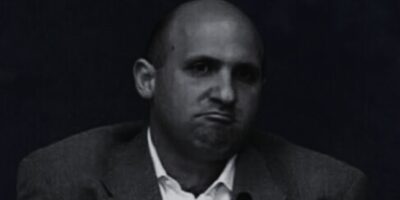





Comments